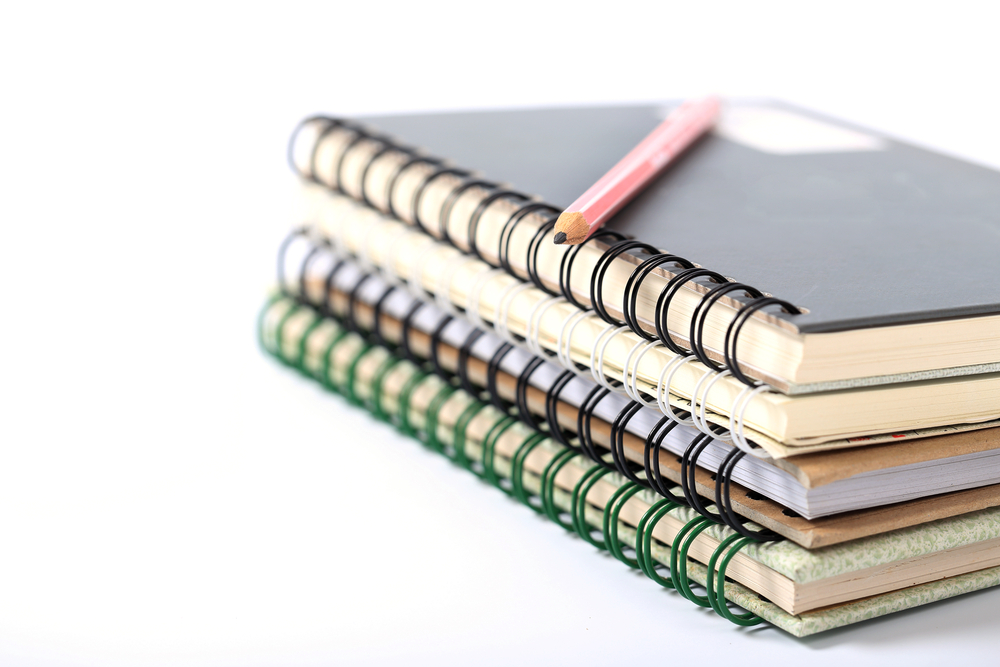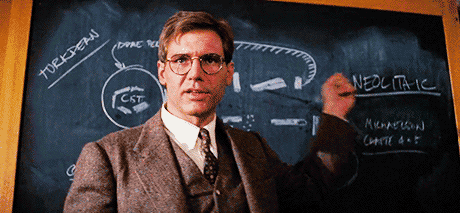
Syda Productions / Shutterstock.com
Most freshmen wouldn’t dream of heading to college without a variety of technology: laptops, smartphones, tablets, smartwatches, and MP3 players, to name a few. Not only are students surrounded by their own electronics, but there is plenty of technology to be found on campus as well: The library is full of school-owned computers, and there is an amazing assortment of specialized electronic equipment in a science lab. You can’t even go into a coffee shop nowadays without spotting a Fitbit or an Apple Watch, not to mention the people who are clicking away on their personal computers, brains full of whatever is coming through their headphones. But how does having all of this technology not even at arm’s length affect attention span, studying, and effective time management when it comes to college?
A 2004 survey of over 4,000 college students found that during an average week, students spent between three and five hours doing “classroom activities” or studying using electronics and one to two hours each writing papers, surfing the internet, emailing, and instant messaging. Of these students, nearly 50% appreciated the convenience of technology, but only 12.8% thought that technology aided learning. Obviously, this study is a little outdated, given the difference in the prevalence of technology between then and now.

Jacob Lund / Shutterstock.com
However, a 2014 study published by the Association for Psychological Science verifies the opinions of those students. In fact, students who take notes on their laptop during lectures have a poorer understanding of the material than students who take notes by hand. This is because students who write out their notes by hand have to synthesize the information into manageable snippets as they take notes instead of typing out everything verbatim, which uses zero brainpower. Let’s not forget to mention the studies that found that 42% of undergraduate students and over 86% of law students are using the internet to perform completely unrelated tasks during lectures. Obviously, you’re not going to learn anything if you’re doing that.
So, then, technology does affect your ability to succeed academically, and not in a good way. Two separate surveys of teachers suggest that a culture in which technology is omnipresent is making it more difficult to teach, because students are developing shorter and shorter attention spans due to the instant gratification that the internet can provide. Not only do teachers believe that student’s attention spans are suffering, but also their interpersonal communication skills and their critical thinking abilities. It intuitively makes sense: We live in a time in which almost any question can be answered by a quick internet search; why would anyone want to work harder than they have to?
People have become more interested in counting their steps via Fitbit, checking their text messages on their Apple Watches or phones, and updating their Instagram accounts with photos of their breakfast than actually engaging with their surroundings. While checking your text messages and making sure that you get in enough fitness can be important, it’s not important during class. Turn off, silence, and put away your electronic devices when it comes time to go to class. Your grades will thank you for it, and maybe you won’t have to study quite as hard when test time rolls around.
Here are some note-taking tips:

Arisara T / Shutterstock.com
Use different notebooks for each class. You don’t want to mix and match when it comes to your notes. It’ll just get confusing when the time comes to study for a test and you’re trying to distinguish art history from introductory chemistry. Buy three or four notebooks at the beginning of the semester and label each of them with the name of one of your classes.
Develop a system. Note-taking can be a little boring, so dress it up with colored pens or a fun organizational system. There is no single right way to take notes, so if you prefer outlines to writing out full sentences, go for it. You’re writing these notes so that you will be able to go back and study them later, so you’re the only one who can choose how you want to organize the material. Your system doesn’t have to be the same for every class, either. Math is inherently different from English literature, so your notes can be different, too.
Pay attention. You can’t take good notes if you’re zoning out or making googly-eyes at your significant other during class. College classes aren’t super long—many are between 50 minutes and an hour and a half, so grab a coffee or chew some gum to wake up and go into class with an academic mentality. Listen to your professor and pay attention to the PowerPoint slides or whatever is written on the chalkboard.
Don’t write down what your teacher says word for word. As mentioned above, if you try to write down everything your professor says verbatim, you’re not going to retain any of the information. Instead, decide what is important and use your own words when you write it down. This way your brain gets a little exercise (so you’re less likely to fall asleep) and studying will be easier in the long run.
Make a list of keywords or formulas. Depending on the class, you may want to consider dedicating a page in your notebook to frequently used words or formulas. If you’re in a physics or math class, knowing basic formulas will be helpful during certain lectures. If you’re in a history class, it might be helpful to write a timeline for the material you’re covering. Write these types of things down so you don’t have to keep referencing your textbook.
If your professor emphasizes it, emphasize it. If your professor takes the time to tell you specifically that something is important, make sure you write it down and emphasize it in some way. Put a star by it, underline it, highlight it, or something else to set it apart from the rest of your notes. It’s not unheard of for professors to say something along the lines of “this will be on the final.” You don’t want to be the one student who misses a question on the final exam because you didn’t bother to write it down.
What they write down, you write down. Many professors lecture outright or teach from a PowerPoint. If they take time to write something on the chalkboard or whiteboard, you can be sure that it’s important. Copy down what they’re writing and make sure that you understand the material (and explain it to yourself in your notes). Ask clarifying questions if you have to.

Indiana Jones / Giphy
Take your own notes. If the professor releases notes or a presentation before class, that’s great! This is a wonderful resource for you to use to prepare for the lecture. However, you still should take your own notes, particularly if the study guide is unintelligible or the presentation is bare bones. Feel free to print out whatever your professor has given you and take your notes on the same paper, or take your own notes and compare them with the ones the instructor has released after class is over. That way you are sure to get all of the material, and taking notes yourself will help you understand them.
Remember, take your notes by hand instead of on your laptop if you want a leg up when it comes to material retention! Otherwise, take your notes in such a way that you remember the material being described. Draw diagrams, store formulas or definitions, and solve sample problems if it will help you in the future. Time to bust out your colorful pens and start learning!
-
Executive Functioning Skills: Attention and Working Memory
-
Seis consejos para mejorar tu inglés lo más rápido posible
-
What Happens When You Cheat or Plagiarize: A Guide for High Schoolers
-
Why Everyone Should Try a Free Online Class at Least Once
-
Finding and Citing Appropriate Sources for Academic Work
-
Time Management Tips for College Students: A Cheat Sheet
-
Las siete mejores aplicaciones para aprender inglés
-
Why You Should Learn to Be Good (Decent) at Public Speaking
-
Five Tips for Bettering Your Focus after a Vacation
-
Nine Simple Study Tips That Will Help You Prepare for Finals
-
Why You Should Take RateMyProfessors.com with a Grain of Salt
-
12 Tips to Help You Master the Art of Note-Taking in College

